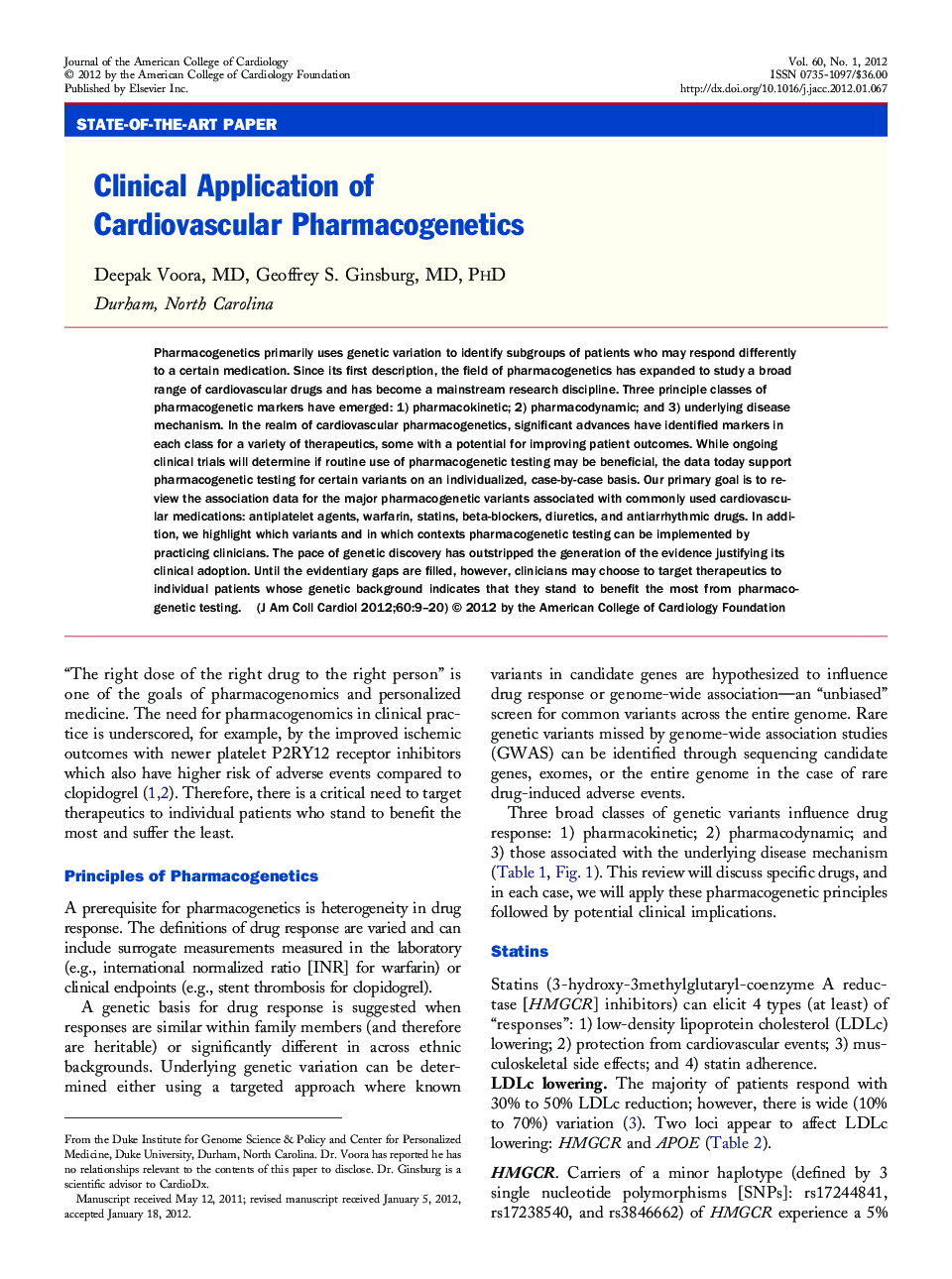| Article ID | Journal | Published Year | Pages | File Type |
|---|---|---|---|---|
| 2948504 | Journal of the American College of Cardiology | 2012 | 12 Pages |
Pharmacogenetics primarily uses genetic variation to identify subgroups of patients who may respond differently to a certain medication. Since its first description, the field of pharmacogenetics has expanded to study a broad range of cardiovascular drugs and has become a mainstream research discipline. Three principle classes of pharmacogenetic markers have emerged: 1) pharmacokinetic; 2) pharmacodynamic; and 3) underlying disease mechanism. In the realm of cardiovascular pharmacogenetics, significant advances have identified markers in each class for a variety of therapeutics, some with a potential for improving patient outcomes. While ongoing clinical trials will determine if routine use of pharmacogenetic testing may be beneficial, the data today support pharmacogenetic testing for certain variants on an individualized, case-by-case basis. Our primary goal is to review the association data for the major pharmacogenetic variants associated with commonly used cardiovascular medications: antiplatelet agents, warfarin, statins, beta-blockers, diuretics, and antiarrhythmic drugs. In addition, we highlight which variants and in which contexts pharmacogenetic testing can be implemented by practicing clinicians. The pace of genetic discovery has outstripped the generation of the evidence justifying its clinical adoption. Until the evidentiary gaps are filled, however, clinicians may choose to target therapeutics to individual patients whose genetic background indicates that they stand to benefit the most from pharmacogenetic testing.
